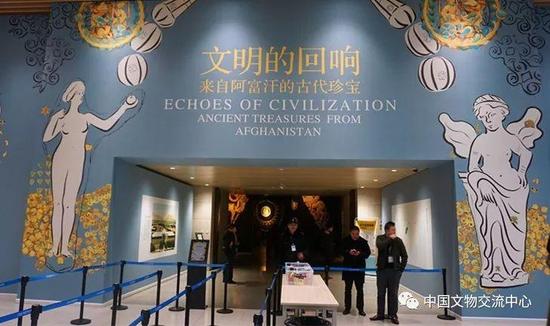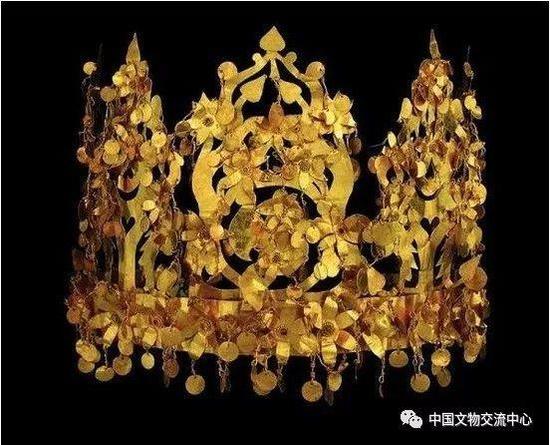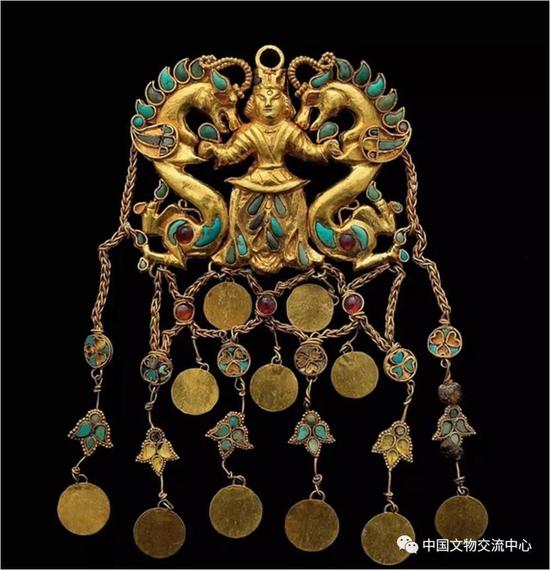

For more than one year, Chinese museums have been displaying ancient cultural treasures from Afghanistan with the aim of protecting them before they are shipped to another country for exhibition.

The 2,000-year-old treasures belong to the National Museum of Afghanistan, which used to be home to over 100,000 cultural relics. But during wars from 1990 to 2001, the artifacts were severely damaged. To protect them, the Afghan government decided to relocate them, and it wasn't until 2003 that they were retrieved by archeologists.
Since 2016, the treasures have been exhibited around the world, in countries such as France, Italy, the Netherlands, the US, Australia and Japan.
In March 2017, they came to the Palace Museum in Beijing, China.
The stable social environment and sound museum equipment in countries such as China have made the Afghan side believe that bringing the treasures as part of a worldwide exhibition is a good way to protect them, said a person in charge of the current exhibition surnamed Li.
The treasures were scheduled to be shipped to another country after the three-month exhibition ended, but due to unforeseen circumstances, the original plan was cancelled.

Without the presence of another host country, the relics would have had to be sent back to Afghanistan where the situation is currently unstable, leaving their fate unknown.
To avoid the risk of the world cultural heritage items becoming damaged, the State Administration of Cultural Heritage of China and the Palace Museum decided to keep the artifacts in the Palace Museum temporarily.
From there, the treasures have been respectively exhibited in southwest China’s Chongqing and Chengdu cities. In Chengdu, the exhibition was visited by 500,000 people in three months, which was one fifth of the total number of visitors recorded in 23 museums around the world.
On the opening day of the show on Feb. 1, Mohammad Fahim Rahimi, Director of the National Museum of Afghanistan, came to Chengdu to express his gratitude to the Chinese museum.
“The exhibition in Chengdu is a gift given to our Chinese friends. Even during such a difficult time, we've managed to protect our cultural heritage objects,” Rahimi said, adding that the Afghan archeological and cultural circles feel very proud that these representative cultural treasures are loved by the Chinese public.

To make this exhibition different from the previous shows in Beijing and Chongqing, Chengdu Museum highlighted the fate of the artifacts, and expressed its confidence in Afghanistan to walk away from war and chaos.
Now, more Chinese museums have joined the effort to protect the Afghan pieces. According to the plan, the items will be sent to Zhengzhou in central China, Shenzhen in southern China, and Hunan province in central China for exhibitions lasting until December.
Rahimi disclosed that Afghanistan still faces challenges to protect cultural relics, such as a lack of money, low level of technology and scientific research, and severe shortage of professional equipment and talent which restricts the restoration process.
The director hopes China and other countries will continue to help the Afghan people take care of these treasures.
Many Chinese institutions, such as Art Exhibitions China, are currently looking for willing cultural and exhibition organizations to offer shelter to the antiques. Even though hosting such exhibitions costs them money, they would prefer not to send the relics back to Afghanistan.
Liu Yuzhu, head of China's State Administration of Cultural Heritage, said efforts are underway to construct the first international cultural relics shelter in China. He encourages more state-level museums and cultural relics protection organizations to actively take part in the efforts and shoulder their international responsibilities.
 Fire brigade in Shanghai holds group wedding
Fire brigade in Shanghai holds group wedding Tourists enjoy ice sculptures in Datan Town, north China
Tourists enjoy ice sculptures in Datan Town, north China Sunset scenery of Dayan Pagoda in Xi'an
Sunset scenery of Dayan Pagoda in Xi'an Tourists have fun at scenic spot in Nanlong Town, NW China
Tourists have fun at scenic spot in Nanlong Town, NW China Harbin attracts tourists by making best use of ice in winter
Harbin attracts tourists by making best use of ice in winter In pics: FIS Alpine Ski Women's World Cup Slalom
In pics: FIS Alpine Ski Women's World Cup Slalom Black-necked cranes rest at reservoir in Lhunzhub County, Lhasa
Black-necked cranes rest at reservoir in Lhunzhub County, Lhasa China's FAST telescope will be available to foreign scientists in April
China's FAST telescope will be available to foreign scientists in April "She power" plays indispensable role in poverty alleviation
"She power" plays indispensable role in poverty alleviation Top 10 world news events of People's Daily in 2020
Top 10 world news events of People's Daily in 2020 Top 10 China news events of People's Daily in 2020
Top 10 China news events of People's Daily in 2020 Top 10 media buzzwords of 2020
Top 10 media buzzwords of 2020 Year-ender:10 major tourism stories of 2020
Year-ender:10 major tourism stories of 2020 No interference in Venezuelan issues
No interference in Venezuelan issues
 Biz prepares for trade spat
Biz prepares for trade spat
 Broadcasting Continent
Broadcasting Continent Australia wins Chinese CEOs as US loses
Australia wins Chinese CEOs as US loses